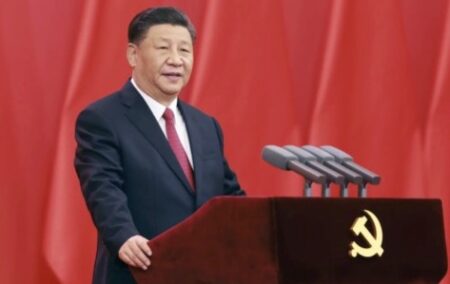China is reluctant to bail out Sri Lanka and Pakistan – both friends of China – which are facing dire financial situations as inflation soars.
China still hasn’t made good on a pledge to reissue loans totalling $4 billion that Pakistan repaid in late March, and it hasn’t responded to Sri Lanka’s pleas for $2.5bn in credit support.
The more cautious approach reflects both a refining of Xi’s signature Belt and Road Initiative as well as a reluctance to be seen interfering in messy domestic political situations.
‘Beijing has for the past couple of years been rethinking its external lending because their banks realised they were carrying a lot of debt with countries whose prospects of paying back were quite limited,’ said Raffaello Pantucci, a senior fellow at the S Rajaratnam School of International Studies at Nanyang Technological University.
‘This came on top of a tightening economic situation at home which also required a lot of spending, so there was less appetite to just throw money around wantonly.’
China has become the world’s largest government creditor over the past decade, with its state-owned policy banks lending more to developing countries than the International Monetary Fund or the World Bank in recent years.
A Shanghai-based scholar (who asked to remain unnamed) said new credit lines are harder to approve as authorities emphasise risk management at financial institutions including policy banks.
At a Belt and Road symposium in November, Xi said: ‘It is necessary to implement risk prevention and control systems.’ He called on participants to ‘avoid dangerous and chaotic places’.
Earlier this month, Jin Liqun, president of the China-backed Asian Infrastructure Investment Bank, encouraged Sri Lanka to turn to the IMF for help.
Pakistan’s new government also plans to work with the IMF to stabilise the economy.

